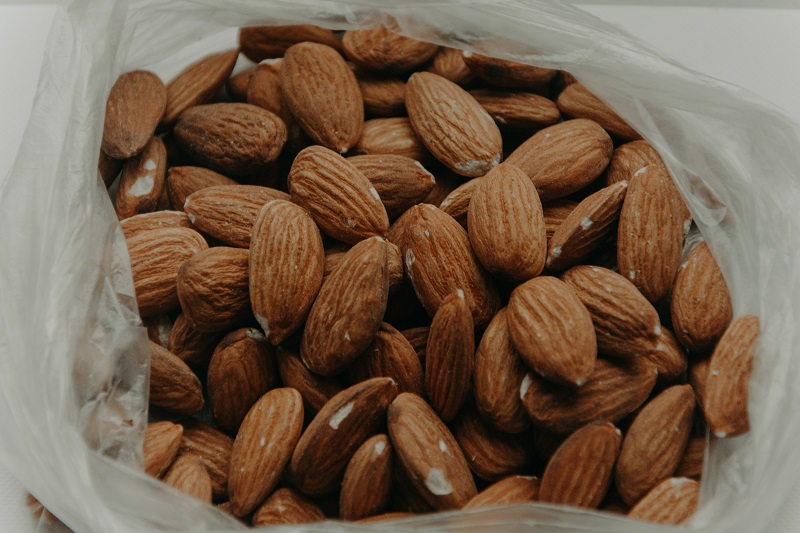Growers Go In-Depth At Biocontrols 2015 Conference & Tradeshow
[blackoutgallery id=”71018″]
-
-
1 of 12
Opening Session at Biocontrols 2015 Conference and Tradeshow
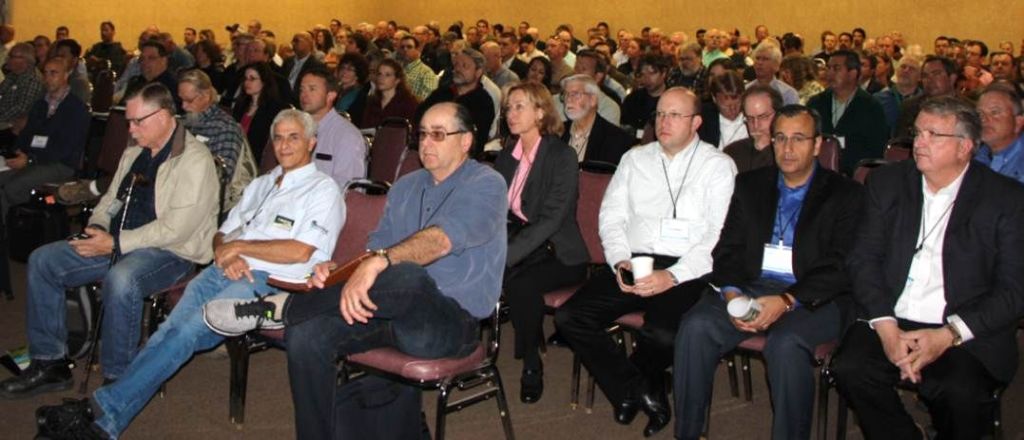
More than 400 growers, pest control advisers and certified crop advisers, researchers, government regulators, and suppliers gathered in Fresno March 3-5 for the Biocontrols 2015 Conference & Tradeshow.
-
2 of 12
Regulatory Overview Of Biopesticides
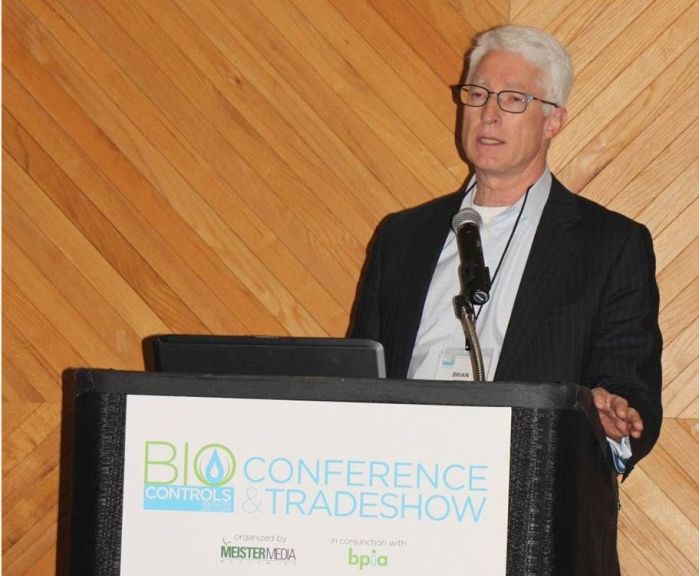
Brian R. Leahy, Director, California Department of Pesticide Regulation, gave an overview of the regulatory environment for pesticides and biopesticides in California. Biocontrols play an increasing role in agricultural production in the state.
-
3 of 12
Using Biocontrols In Almonds

Brad Higbee, Director of Entomology Research for Paramount Farming Co., Bakersfield, CA, is using mating disruption to control navel orangeworm in nut crops. Insecticide applications have been reduced 50% over the past five years.
-
4 of 12
On The Tradeshow Floor
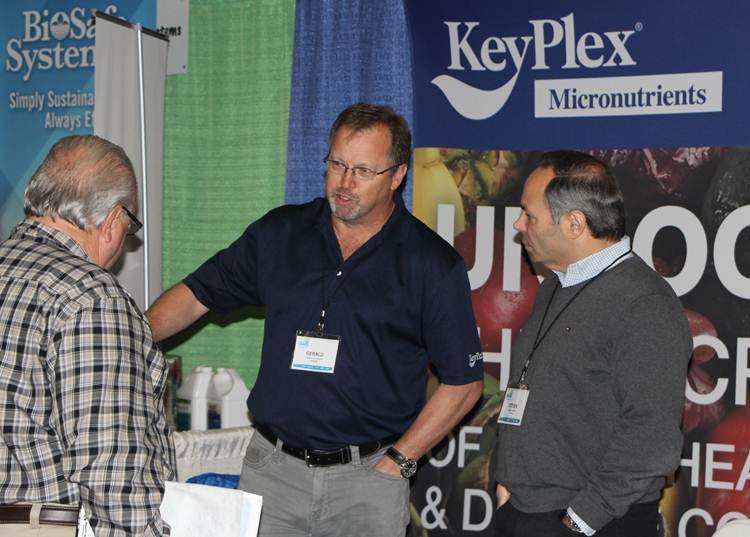
Gerald O’Connor (middle) and Steven Bessette (right) of KeyPlex, Winter Park, FL, discuss their products on the exhibition floor of Biocontrols 2015 Conference & Tradeshow, Fresno, CA, March 3-5, 2015. Nearly 40 organizations exhibited at the event.
-
5 of 12
On The Tradeshow Floor
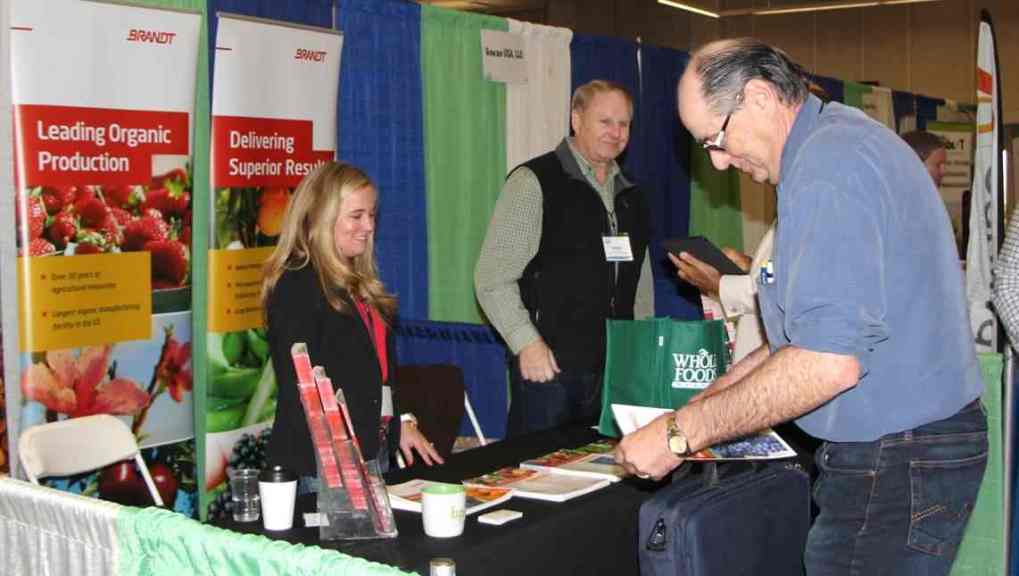
Chandra Roberts (left) and Randy Dodds (middle) of Brandt Consolidated discuss their products on the exhibition floor of Biocontrols 2015 Conference & Tradeshow, Fresno, CA, March 3-5, 2015. Nearly 40 organizations exhibited at the event.
-
6 of 12
Lunch Break At Biocontrols 2015

Greg Gaffney (left) of BioAg Services, Fresno, CA , enjoys lunch at the Biocontrols 2015 Conference & Tradeshow with Alex Traven (middle) and Lloyd Traven (right), both of Peace Tree Farm, Kintnersville, PA. More than 400 growers, pest control advisers and certified crop advisers, researchers, government regulators, and suppliers attended the event in Fresno, CA.
-
7 of 12
On The Tradeshow Floor
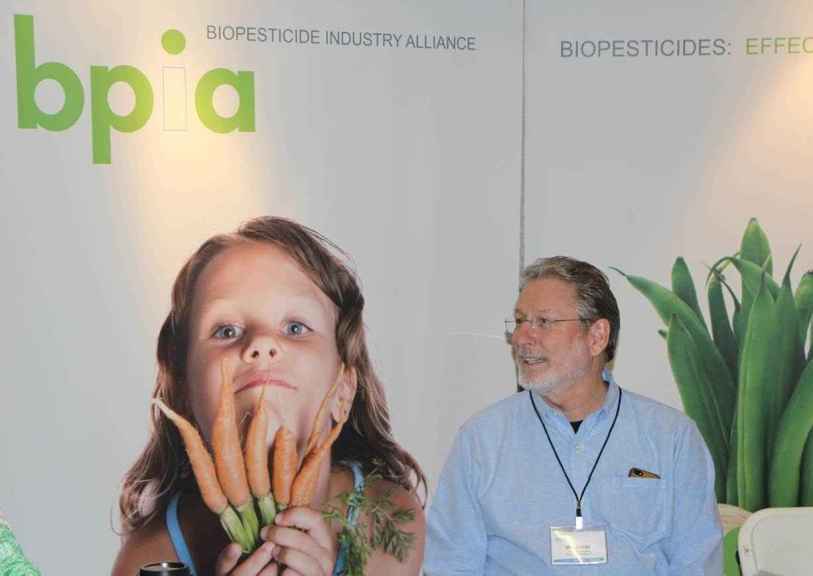
William Dunham of DunhamTrimmer LLC represents the Biopesticide Industry Alliance (BPIA) at the Biocontrols 2015 Conference & Tradeshow in Fresno, CA, March 3-5, 2015. Nearly 40 organizations exhibited at the event.
-
8 of 12
Registering At Biocontrols 2015
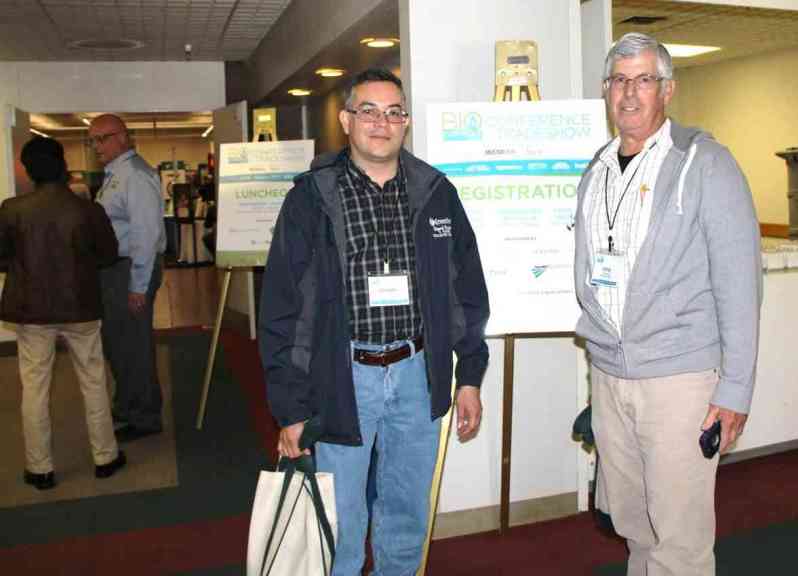
Edgard Ramirez (left) and Steve Sapone of Greenheart Farms, Arroyo Grande, CA, register for the Biocontrols 2015 Conference & Tradeshow in Fresno, CA.
-
9 of 12
Using Biocontrols In The Pacific Northwest
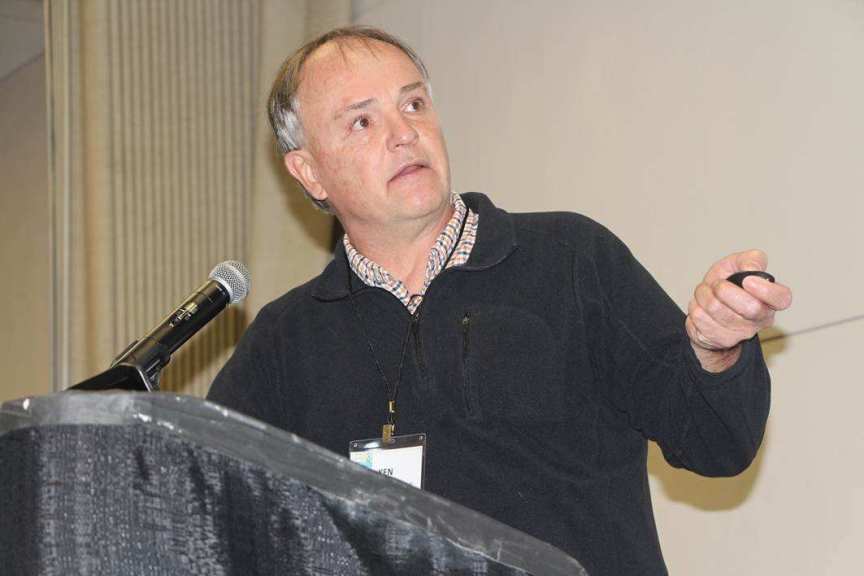
Dr. Ken Johnson, professor of botany and plant pathology at Oregon State University, Corvallis, OR, describes use of biocontrols to control fire blight in pears and apples at Biocontrols 2015.
-
10 of 12
Using Beneficial Insects In Greenhouses
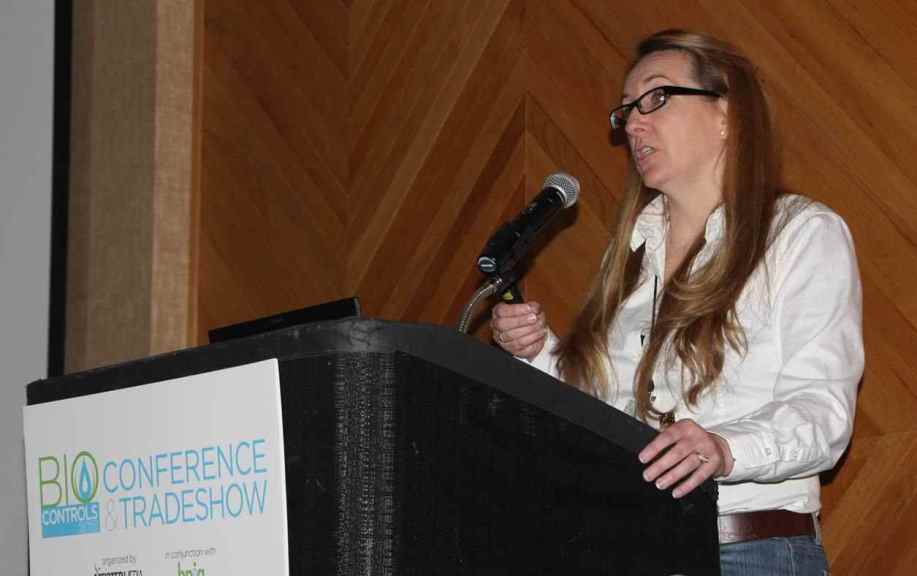
Suzanne Wainwright-Evans of Buglady Consulting, Slatington, PA, describes common-sense handling and use of beneficials in greenhouses at Biocontrols 2015.
-
11 of 12
EPA Encourages Use Of Biopesticides

EPA encourages registration and use of biopesticides as part of its core mission, said Robert McNally, Director, Office of Pesticide Programs, Biopesticides and Pollution Prevention Division, U.S. Environmental Protection Agency.
-
12 of 12
On The Tradeshow Floor
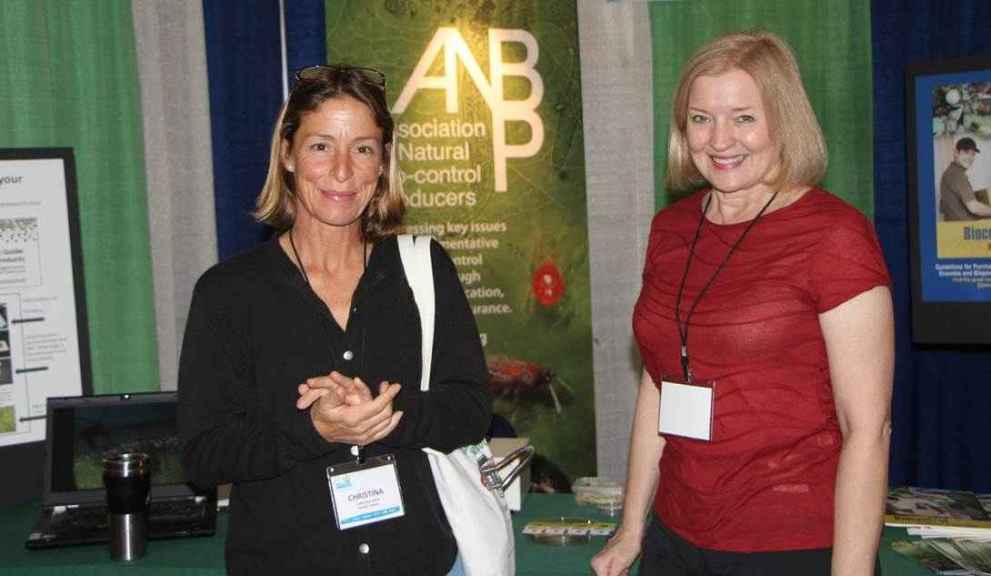
Christina Smith (left) of Rocket Farms, Salinas, CA, chats with Lynn LeBeck of the Association of Natural Biocontrol Producers (ANBP), Clovis, CA, at Biocontrols 2015.
View all
Opening Session at Biocontrols 2015 Conference and Tradeshow

Regulatory Overview Of Biopesticides
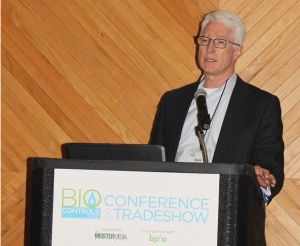
Using Biocontrols In Almonds

On The Tradeshow Floor

On The Tradeshow Floor

Lunch Break At Biocontrols 2015

On The Tradeshow Floor

Registering At Biocontrols 2015
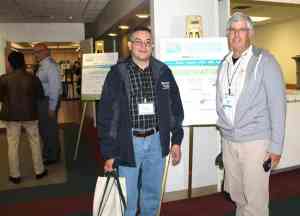
Using Biocontrols In The Pacific Northwest

Using Beneficial Insects In Greenhouses

EPA Encourages Use Of Biopesticides

On The Tradeshow Floor

More than 400 growers, pest control advisers and certified crop advisers, researchers, government regulators, and suppliers gathered in Fresno March 3-5 for the Biocontrols 2015 Conference & Tradeshow. This event – a first of its kind focused solely on the use of biopesticides and other biocontrols – brought attendees together for an in-depth discussion on the latest tools available, “how-to” production topics, market trends, and regulatory issues.
Attendees also spent time with nearly 40 exhibitors learning about new technologies, techniques and services that are making the use of biocontrols more mainstream with growers all over the country.
“Ours is a very economic and science-based business culture,” said Gary Schulz, the new CEO of the California Association Of Pest Control Advisers (CAPCA). “We encourage our pest control advisers (PCAs) to use all of the tools they have available, both traditional chemicals as well as many of the new softer materials including biopesticides and biocontrols.”
Sessions at the event covered a broad range of topics from crop-specific production techniques for fruit, vegetable, and ornamental crops to broader industry issues, including a spirited discussion on maximum residue levels (and how biocontrols can help growers stay under tolerance limits for sales to both U.S. and international markets).
“EPA is trying to develop a more predictable regulatory process for these materials,” said Robert McNally, director of EPA’s Office of Pesticide Programs, Biopesticides and Pollution Prevention Division.
Dr. Surendra Dara, Strawberry and Vegetable Crops Advisor and Affiliated IPM Advisor with University of California Cooperative Extension pointed out that as more useful biological products are becoming available, the technology is beginning to deal a little more successfully with the perception issues that have plagued it in the past. But there’s still work to be done, he said.
“Biopesticides do not have to be just for organic production. These are tools for conventional growers, too,” he said. “These materials do work.”
Subscribe Today For

Richard Jones is a former Corporate Content Director for Meister Media Worldwide. For more than two decades he served as an editor for brands in Meister's U.S. Horticulture Group, including American Vegetable Grower®, American Fruit Grower®, Western Fruit Grower®, Florida Grower®, and Greenhouse Grower® magazines. See all author stories here.







